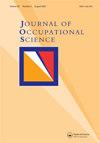特刊:挑战职业科学的界限:我们奖学金的多元议程
IF 2.9
Q1 SOCIAL SCIENCES, INTERDISCIPLINARY
引用次数: 0
摘要
科学对话往往局限于同行评审期刊和会议的专业空间。这些空间让学者们可以相互交流思想,分享研究成果。在这些空间中进行“研究”是以学者实践的传统和做法为指导的,反过来又传授给新学者(Aldrich et al.,2022)。在职业科学中,在研究职业现象及其复杂性以及我们处理工作的方式方面,出现了越来越关键的转变。这包括反思我们的实践和检查我们的偏见,因为它们支持我们如何构建和追求我们的研究。正如Williams(2023)所指出的,偏见使我们能够在各种情况下快速有效地发挥作用,但也可能成为歧视行为的基础:本文章由计算机程序翻译,如有差异,请以英文原文为准。
Special Issue: Challenging boundaries within occupational science: A pluriverse agenda for our scholarship
Scientific dialogue is often confined to professional spaces in peer-reviewed journals and conferences. These spaces allow scholars to interact to exchange ideas and share findings. The enactment of “research” in these spaces is guided by traditions and ways of doing that are practiced by scholars and, in turn, taught to new scholars (Aldrich et al., 2022). In occupational science, there has been an increasingly critical turn in examining the phenomenon of occupation, in all its complexity, as well as the ways in which we approach our work. This includes reflecting on our practices and examining our biases, as they support how we construct and pursue our studies. As Williams (2023) notes, biases allow us to function quickly and efficiently in situations but also can underlie discriminatory behavior:
求助全文
通过发布文献求助,成功后即可免费获取论文全文。
去求助
来源期刊

Journal of Occupational Science
SOCIAL SCIENCES, INTERDISCIPLINARY-
CiteScore
4.30
自引率
41.70%
发文量
46
 求助内容:
求助内容: 应助结果提醒方式:
应助结果提醒方式:


